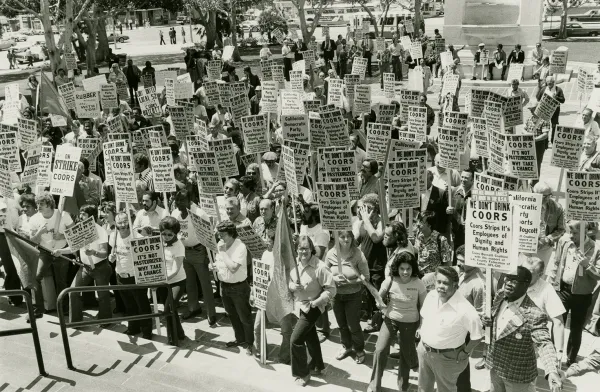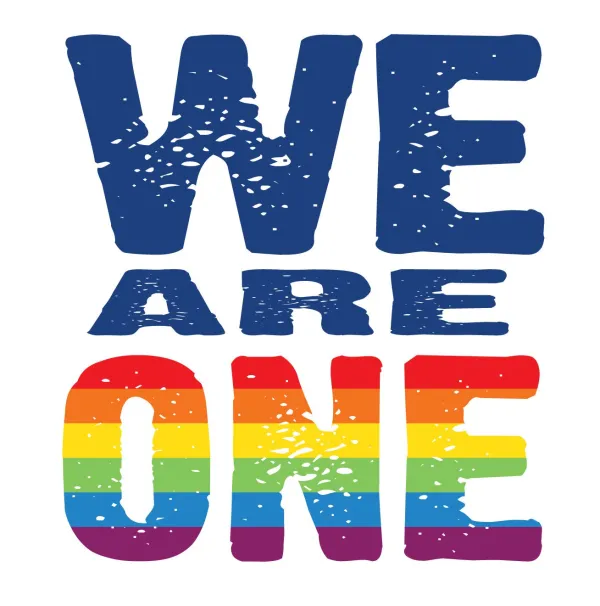Pride at Work- History
Prior to 1969, the labor movement mostly ignored issues that affected LGBTQ working people. The events at Stonewall Inn and the rebellion that followed woke up many in the ranks of labor to the need to step up efforts to include all workers, including our LGBTQ siblings. After Stonewall, unions began to recognize that discrimination based on sexual orientation was another assault on working people, one that victimized union members and weakened efforts at solidarity among working families.

As the 1970s began, the AFT was the first union to pass a resolution against discrimination based on sexual orientation. In 1974, the Teamsters worked with the LGBTQ community members in San Francisco on a boycott against the anti-union Coors Brewing Co. Over the next few decades, support for LGBTQ rights in the labor movement continued to grow. The AFL-CIO passed a resolution that called for legislation to ban workplace discrimination based on sexual orientation. More and more unions started creating LGBTQ caucuses and opened up space for LGBTQ workers to be activists and open about their sexual orientation.
While some unions took the lead, the labor movement was largely silent on issues related to LGBTQ rights and issues. This led LGBTQ union activists to come together to form Pride At Work. The activists met in New York in 1994, the 25th anniversary of the Stonewall rebellion. Earlier efforts at organizing had led to groups such as the Lesbian and Gay Labor Alliance (in the San Francisco Bay Area), the Lesbian and Gay Labor Network (New York) and the Gay and Lesbian Labor Activists Network (New England). Efforts such as these would eventually be consolidated into a larger LGBTQ workers organization, Pride At Work. In 1997, the organization was officially recognized by AFL-CIO as a constituency group.
Among Pride At Work's first campaigns were efforts to pressure Chrysler to ban anti-LGBTQ discrimination. Chrysler made the requested changes in 1999 and Ford and General Motors soon followed. Domestic partner benefits were gained a year later. Later, in 2005, P@W successfully convinced the AFL-CIO to support marriage equality. In 2012, the AFL-CIO supported the legal case that led to the national legal recognition of same-sex marriage.
(Source:LGBT History Month Pathway to Progress: The Founding of Pride At Work)
Pride At Work organizes mutual support between the organized Labor Movement and the LGBTQ Community to further social and economic justice. From our national office in Washington, DC, we coordinate and support more than 20 Chapters across the country.

We seek full equality for LGBTQ Workers in our workplaces and unions. We work towards creating a Labor Movement that cherishes diversity, encourages openness, and ensures safety & dignity. We aim to educate the LGBTQ Community about the benefits of a union contract for LGBTQ working people, and to build support and solidarity for the union movement in the LGBTQ community.
We organize in the spirit of the union movement’s historic motto, “An Injury to One is An Injury to All.” We oppose all forms of discrimination on the job and in our unions based on sex, gender identity and expression, sexual orientation, race, national or ethnic origin, age, disability, religion or political views.
(Source: prideatwork.org)
Join us on October 12th for more information on what is happening with Pride at Work Milwaukee!